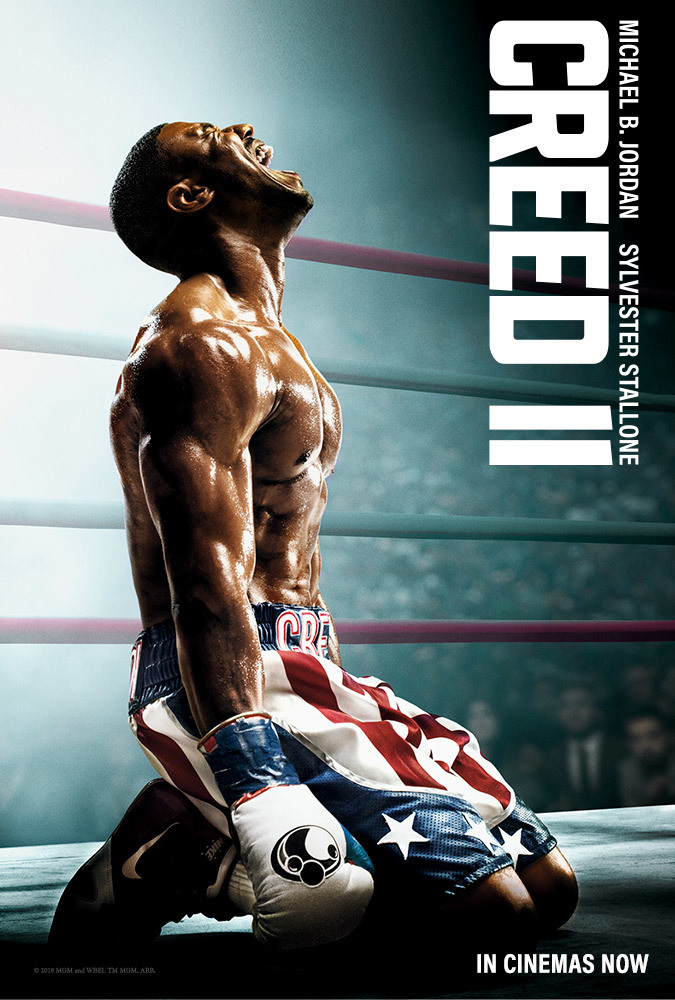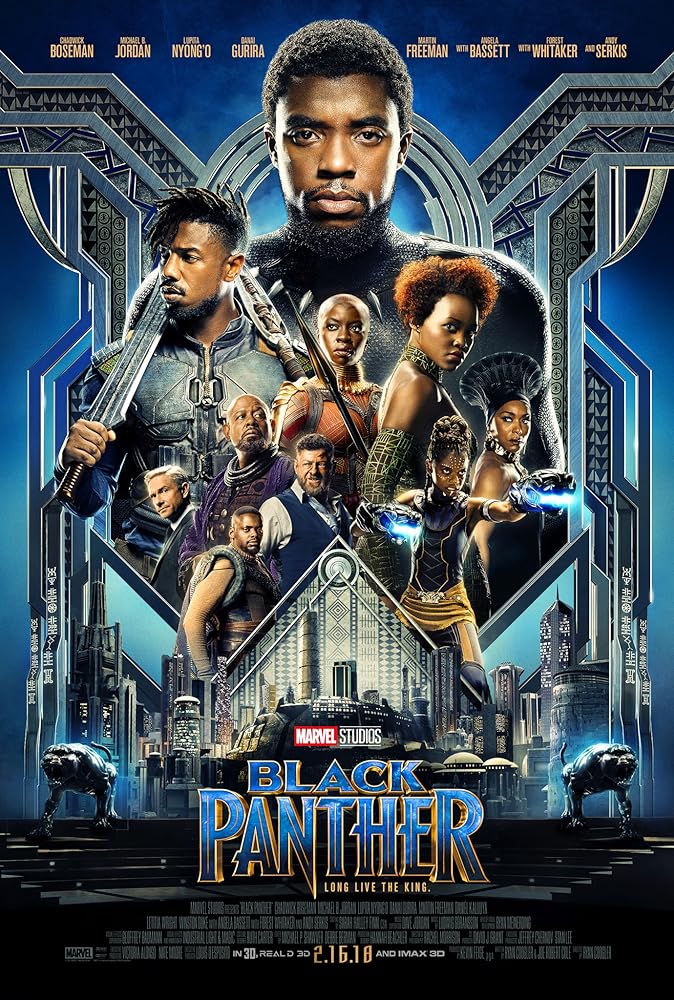
For more than 4 decades, the city of Philadelphia has been closely tied to one of the most iconic film franchises of all-time, the Rocky series. It all began, of course, with the 1976 classic about a local boxer named Rocky Balboa (played by Sylvester Stallone, who also wrote the film) whose journey to fight the heavyweight champion of the world led to him doing the impossible and going the distance. And the film itself went down that same path, surprising everyone by winning Best Picture at that year’s Oscars. The series would then continue on with five more sequels up until 2006’s Rocky Balboa, and while some of the sequels admittedly got rather silly at times, the franchise continues to remain a staple of pop culture, Philadelphia culture, and the sports film genre. And while Rocky’s time in the ring ultimately came to an end after the sixth film, fans of the franchise were treated to a surprise comeback when it was revealed that the series would continue in 2015 with a spin-off titled Creed. Under the direction of Ryan Coogler, the film shifted focus onto Adonis Johnson Creed, the son of Rocky’s original foe, Apollo Creed. And upon its release, the film was a smash hit with both critics and audiences, with many touting it as one of the best installments of the franchise. But now ‘Donnie’ Creed is back in the second installment of his new series, Creed II, which sees him take on his most personal opponent yet; the son of the man who had killed his father more than three decades prior, Ivan Drago. This time, however, Ryan Coogler was unavailable to direct due to his commitment to a certain Marvel superhero flick that lead actor Michael B. Jordan also happened to be involved with. And while it was initially reported that Sylvester Stallone would be stepping in to direct after previously helming films 2, 3, 4, and 6, it was instead decided to maintain the trend of the previous film by allowing a new generation of filmmakers to work on the franchise. Thus, general newcomer Steven Caple Jr. steps in to helm a sequel that, to reference one of this series’ many iconic songs, shows that this franchise still possesses that ‘Eye of the Tiger’.
It has been three years since Adonis ‘Donnie’ Johnson Creed (Michael B. Jordan) successfully managed to overcome the burden of following in the footsteps of his father, the late Heavyweight Champion Apollo Creed, with the aid of his father’s foe turned friend, fellow former Heavyweight Champion Rocky Balboa (Sylvester Stallone). And after becoming the new Heavyweight Champion himself, Adonis is more than ready to start off a new chapter in his life with his fiancé, singer Bianca Taylor (Tessa Thompson). However, the past once again comes back to haunt Adonis when a new challenger emerges in Viktor Drago (Florian Munteanu), the son of notorious Russian boxer Ivan Drago (Dolph Lundgren). Drago, of course, became infamous back in the ’80s when he killed Apollo during a simple exhibition match, and after being beaten by a vengeful Rocky in his home country during a subsequent bout, he now seeks redemption by training his son to take on Adonis. But while Adonis immediately sets his eyes on fighting Viktor and avenging his family name, Rocky warns him that he’s way too dangerous of an opponent given the track record of the man who’s training him. Adonis hastily ignores Rocky’s suggestion, however, and takes the fight which, simply put, does not bode well for him. Dealt with some intense injuries, Adonis now finds himself on the slow path to recovery as he prepares for the inevitable rematch where he seeks to avenge his family’s legacy while, at the same time, being forced to deal with some heavy-hitting developments in his personal life.
I think it’s safe to say that when it was revealed that Creed II would be bringing back Ivan Drago, some were a bit fearful about the film returning to the overall tone of Rocky IV, which is widely considered to be the goofiest installment of the franchise. This was, after all, the same film where Rocky bought an actual robot for his brother-in-law Paulie, featured a full-blown musical performance by James Brown singing ‘Living in America’ and was mostly just a series of montages where Rocky faced off against the equivalent of the final boss in a video game. But thankfully that’s not the case with Creed II, as it does maintain the same serious tone of its predecessor. And in this instance, it’s fitting to have Donnie face off against Drago’s son because it more than fuels this film’s emotional depth given everything that their family did to his all those years ago. True to franchise form, this film maintains a strong emphasis on its main protagonist and the physical and mental struggles that he goes through, and director Steven Caple Jr. does a phenomenal job when it comes to handling the story’s most emotional moments. And while there aren’t any major single-take fight sequences like in Ryan Coogler’s film, the boxing matches in this film are still excellently filmed and edited. In short, both Creed films fully succeed in accomplishing the same thing that the original Rocky films managed to achieve all those years ago. They properly set up their main characters and the ‘underdog’ situation that they find themselves in and then proceed to take their time to ensure that audiences are fully endeared to them. Thus, when the film’s final boxing match does occur, we’re fully behind them as they take on their opponent, resulting in an emotionally satisfying conclusion. Yeah, it’s undoubtedly become this series’ defining formula at this point, but it’s still quite effective in its execution, which is saying something considering that this is the eighth installment of the series.
As was the case with the first film, Creed II primarily belongs to Michael B. Jordan, who’s fantastic once again as Adonis Creed. Even when he ends up diving into a situation without thinking things through first, he still manages to be a highly sympathetic protagonist and Jordan’s charisma is in top form here. A lot of this also comes via his relationship with Bianca, who in just two films has more than managed to become more than just the equivalent of what Adrian was to Rocky in the previous films. Jordan and Tessa Thompson have phenomenal chemistry and one major plotline that revolves around their newborn daughter Amara being afflicted with a serious physical condition provides the film with one of its most emotionally devastating moments. Phylicia Rashad also happens to get a bit more to do this time around as Adonis’ mother (and Apollo’s widow) Mary Anne, primarily thanks to her sharp wit whenever she shares a scene with Jordan. And, of course, there’s still Sylvester Stallone being as great as ever as Rocky Balboa. Admittedly, this one doesn’t give him the same emotionally-charged storyline that he got with Rocky’s cancer diagnosis in the first Creed, but he continues to maintain Rocky’s status as one of the most endearing protagonists in film history. But perhaps the most impressive thing that this film manages to achieve is taking the character of Ivan Drago and effectively presenting him in a serious manner. That’s right, this isn’t the over-the-top goliath of Rocky IV anymore; instead, we get a man who’s deadly committed to regaining his former glory no matter the cost. In other words, it’s easily the best performance of Dolph Lundgren’s career. Admittedly, though, his son Viktor doesn’t get as much to work with character-wise. Granted, Florian Munteanu does prove to be quite the physical foe for Adonis to face and there is some decent characterization with him when it comes to him trying to understand why his father is so desperate to win back those who shunned him after his loss to Rocky. Ultimately, though, he arguably gets even fewer lines than his dad did in Rocky IV.
The most common word that is being tossed around with this film is ‘predictable’. After the whirlwind success of the first Creed, several critics have lamented the fact that this film decides to go for a straight-forward plot that rehashes one of the most notable storylines from a past installment of the franchise. Well, to that I say this… yes, it’s predictable… but is that really such a bad thing? After all, the Rocky films usually aren’t known for re-inventing the wheel when it comes to their writing. And yes, that even includes the first Creed, which literally ended the same way as the original Rocky four decades prior and ultimately worked as well as it did thanks to Ryan Coogler’s strong direction and the outstanding lead trio of Jordan, Stallone, and Thompson. And despite the loss of Coogler as director for this one (though he did stay on as an executive producer), Steven Caple Jr. does an excellent job in his place because he continues to maintain an emphasis on the most important aspect of these films, their characters. Sure, you can tell that things will end up being alright for Donnie and his family, but it’s more about the journey there than the destination itself. Plus, it even manages to take the series’ goofiest villain and find some bits of humanity within him, thus making him just as intimidating as he was in Rocky IV but in a vastly different way. In short, Creed II is another rousing success story for this legendary franchise that, pardon the pun, delivers yet another emotional knockout. And considering the recent announcement by Sylvester Stallone that revealed that this will ultimately be his final turn as Rocky Balboa, that effectively makes this film one hell of a send-off for a true icon of the big-screen right as his new protégé becomes a legend in his own right.
Rating: 5/5!
